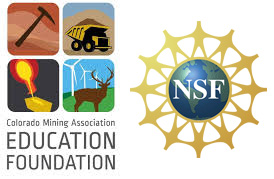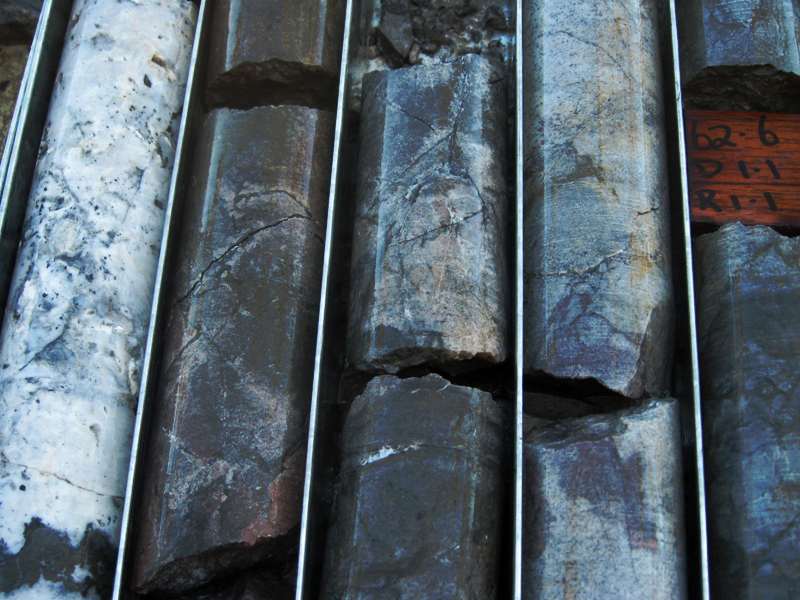Teaching and Outreach
MINING GEOLOGY RESEARCH GROUP
VIRTUAL VISITING SCIENTISTS AND ENGINEERS:
an outreach program of the Mining Geology Research Group, Colorado School of Mines
Would you like a scientist or engineer to visit your class and provide real-world context for a topic you’re covering? We’re available to present our research, explain a topic in one of our disciplines, or answer student questions in chemistry, physics, earth science, math, engineering and more.
How to request a visit
It’s easy! Just follow the next few steps:
- View Our Team to see all of our strengths!
- Fill out and submit the Request Visit contact form at the bottom of this page
- A team member will contact you and work with you to find a suitable date and time
- Test the virtual platform (Zoom, Skype, or other)
- Your students can directly engage with a scientist or engineer!
Attention K-12 Teachers
Join our research group on campus for a special workshop for K-12 teachers during the Colorado Mining Association Education Foundation’s All About Mining graduate-level teacher licensure and recertification program. For more information see http://www.allaboutmining.org.
Scholarships available by contacting Dr. Elizabeth Holley.
Request a Visit
TEACHING STATEMENT - DR. ELIZABETH HOLLEY
I am passionate about teaching and see it as an opportunity to help students make a difference in the world. I first fell in love with teaching as an eleven year old, when I founded a science summer camp for neighborhood kids. I taught camp every summer for nearly a decade, and teaching has been a driving force in my life since then. My desire to teach motivated me to coach at-risk high-school students, to push myself hard in my own graduate education, and ultimately to become a science professor. I am so thrilled to engage with students every day, whether it’s on technical topics, career planning, or spontaneous discussions on life and our diverse human experiences!
My current mission is to help students use geological knowledge to solve engineering problems throughout the mining lifecycle. I see myself as a coach in this process, rather than the sage on the stage. Instead of lecturing on a list of topics, I design each course as a suite of learning opportunities enabling students to achieve the learning outcomes. In the classroom I use case studies and current events to capture student interest and contextualize geoscience in its applications. I prefer hands-on exercises to the abstract. When possible we go into the field to learn the concepts straight from the outcrop, or we engage with real data and rocks in hands-on class projects. All my courses include major components of active learning as well as learning by teaching. As I refine the curricular materials that I have developed, I continue to assess the efficacy of my courses so that I can refine them for the benefit of the students, now and in their future careers. I see teaching as an art and I constantly work on my own pedagogical skills, and I apply educational research in my courses to maximize student learning. This effort is reflected in student performance on learning outcomes in my courses, as well as in the rapport that I develop with the students as individuals.
In my courses, I focus on the application of geoscience to mineral exploration and mining. I have taught required undergraduate geology courses in the Mining Engineering and Geological Engineering degree programs, as well as graduate courses in both departments. I have developed entirely new curricula for all the courses that I have taught, incorporating student-centered design and active learning. The Geological Engineering class of 2016 awarded me “Most Inspirational Professor” based on their positive experiences in my Senior Design Course (GEGN 403 Mineral Exploration Design), where we completed all the steps in a mineral exploration program using real industry data from my own professional experience. My revision of the undergraduate geology curriculum for mining engineers has been a massive multi-year project, supported in part by a Trefny Institute summer fellowship (GEOL/MNGN 310 Earth Materials, and GEOL/MNGN 311 Mining Geology). The curriculum required a complete overhaul, focusing on the application of geoscience to mining, as well as reducing redundancy and incorporating more hands-on experiences. I now teach the course through case studies, which help students make the connection between geoscience and its engineering applications. I quantitatively assessed the teaching methods, and the data indicated that the revised course format has a positive impact on student attitudes towards and willingness to apply geoscience in engineering design. The results of this assessment were published in the peer-reviewed Journal of Geoscience Education.
My current graduate course (MNGN 528 Mining Geology) is an exciting interdisciplinary course that examines the application of geoscience throughout the mining lifecycle. I have previously taught a field version of this course, incorporating a week-long field trip to active mines in Nevada facilitated by my network of industry contacts. I also developed an alternate version of the course, focusing on how geological uncertainty propagates from the geological model into engineering design, and how those uncertainties create problems and opportunities throughout the mining lifecycle. This is the first graduate course in the United States to be offered on this very hot topic, to the best of my knowledge. Through industry connections, I was able to obtain a complete geological dataset from a world-class gold mine, as well as student licenses for a top-tier 3D modeling software package for a hands-on project. The class employs active learning and student-centered design. The students typically include geologists, mining engineers, metallurgists, and mineral economists. The course content goes far beyond the “state of practice:” students are actually creating new knowledge on the impacts of geological uncertainty in mine design.
Would you like a scientist or engineer to visit your class and provide real-world context for a topic you’re covering?


CURRENT TEACHING
- GEOL/MNGN 310: Earth Materials
- GEOL/MNGN 311: Mining Geology
- MNGN 528: Graduate Mining Geology (field and modeling-based versions)
PREVIOUS TEACHING
- GEGN 403: Mineral Exploration Design
- GEOL 520: New Developments in Mineral Exploration
- GEOL 528: Reflected Light and Electron Microscopy
- GEOL 598: Geology and Ore Deposits of Northern Nevada
- Environmental Chemistry (Regis University)
-
Environmental Science (Regis University)
- Introductory Geology (Regis University